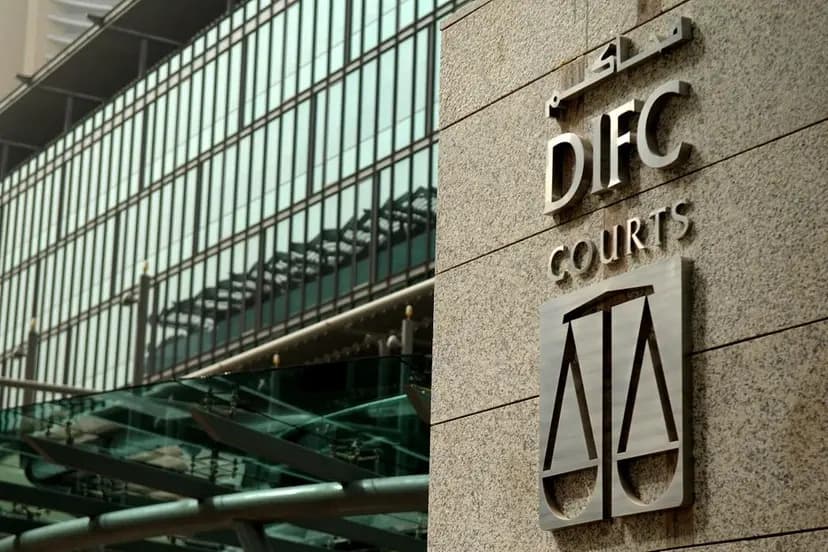
How DIFC Courts Are Expanding Beyond Litigation With Innovative Mediation and Notary Solutions
Blending technology with global best practices, the new services aim to deliver faster, cost-effective and enforceable pathways to justice.
The Dubai International Financial Centre (DIFC) Courts have taken a major step toward strengthening the region’s dispute resolution framework with the launch of a dedicated Mediation Service Centre and a new Notary Service. Both initiatives have been established under the DIFC Courts’ renewed mandate, reflecting Dubai’s wider vision of building a modern, accessible, and globally competitive judicial system.
The Mediation Service Centre is designed to provide parties with a structured yet flexible path to settle disputes without resorting to full-scale litigation. Mediation allows businesses and individuals to preserve commercial and personal relationships by seeking amicable settlements under the guidance of experienced, court-approved mediators. Unlike arbitration or litigation, mediation focuses on consensus and collaboration, helping parties arrive at solutions that are both practical and enforceable.
Parties involved in disputes will have the freedom to select mediators from the DIFC Courts’ accredited panel, negotiate terms and fees in advance, and determine the format of their mediation sessions. Proceedings may be held remotely through the Courts’ upgraded, AI-enabled Court Management System (CMS) or in person at the DIFC Courts’ premises. The CMS platform is designed to ensure efficiency and transparency, offering parties digital scheduling tools, case tracking, and secure access to mediation materials. This hybrid model reflects the Courts’ commitment to blending tradition with innovation, allowing participants to resolve disputes in a way that best suits their circumstances.
One of the key strengths of the new framework lies in the enforceability of mediated settlements. Under the DIFC Courts Law, agreements reached through the Mediation Centre can be formalised and recognised with the same effect as a court judgment. This guarantees certainty for parties and brings the DIFC in line with international best practices, including the standards set out in the United Nations Convention on International Settlement Agreements Resulting from Mediation (the Singapore Convention on Mediation). For businesses operating in and through Dubai, this provides reassurance that mediated outcomes will not only save time and cost but also carry the weight of law if enforcement becomes necessary.
Alongside mediation, the DIFC Courts have also unveiled the UAE’s first dedicated Notary Service for English-language documents. This innovation addresses a growing demand among the international business community, offering a faster and more efficient route to notarisation for companies and individuals operating in the financial hub. Notary Officers attached to the DIFC Courts are authorised to administer oaths, attest affidavits, affirmations and declarations, and certify true copies of documents.
The Notary Service is built around flexibility and accessibility, offering three modes of delivery:
-
A fully automated self-service option for routine documents;
-
A live virtual system allowing users to complete notarisation remotely;
-
A traditional in-person service at the DIFC Courts.
For added security, the service incorporates DataFlow’s Primary Source Verification(PSV), which authenticates the origin of documents and provides an extra layer of trust for cross-border transactions. Notarised documents are issued with either an electronic or physical stamp and seal, while all notarisation events are logged using advanced cryptographic methods and recorded with a timestamp on a blockchain ledger. This not only ensures tamper-proof verification but also positions the DIFC Courts as global leaders in applying distributed ledger technology within the judicial sphere.
These dual services -- mediation and notary -- are part of a broader transformation plan to expand the DIFC Courts’ role beyond traditional adjudication. By offering cost-effective alternatives, the Courts are addressing common challenges businesses face in litigation: lengthy timelines, high costs and potential reputational risks. Mediation, in particular, is being positioned as a strategic tool for dispute management, encouraging parties to maintain continuity in commercial dealings rather than resorting to adversarial proceedings.
The impact of these reforms will be felt across multiple sectors. In commercial disputes, mediation provides companies with the chance to negotiate confidentially and protect sensitive business information. In employment and labour disputes, it creates space for more balanced discussions, often preserving the employer-employee relationship. For family and civil disputes, mediation offers a less confrontational environment, helping parties resolve matters more humanely.
From a global perspective, the move reinforces Dubai’s ambition to be a hub for modern dispute resolution. With an increasing number of multinational corporations establishing a presence in the DIFC, the Courts’ efforts to provide English-language notarisation, enforceable mediated settlements, and digital-first services will further boost investor confidence. It also reflects an awareness of evolving global trends in legal services, where technology, alternative dispute resolution, and cross-border enforceability are shaping the future of judicial systems.
The launch of the Mediation Service Centre and the Notary Service highlights the DIFC Courts’ role as not just a forum for disputes, but as an institution actively shaping the legal ecosystem to meet the needs of a rapidly changing economy. By integrating innovative technologies, aligning with international conventions, and providing user-focused services, the Courts are setting a new benchmark for judicial innovation in the region.
As Dubai continues to position itself as a global centre for commerce and finance, these developments signal that the emirate’s judiciary is keeping pace with business needs—efficient, enforceable, and globally connected. For parties entering into contracts, resolving disputes, or handling cross-border transactions, the message is clear: the DIFC Courts are not just a place for litigation, but a comprehensive platform for justice in the 21st century.
For any enquiries please fill out this form, or contact info@thelawreporters.com and Follow The Law Reporters on WhatsApp Channels